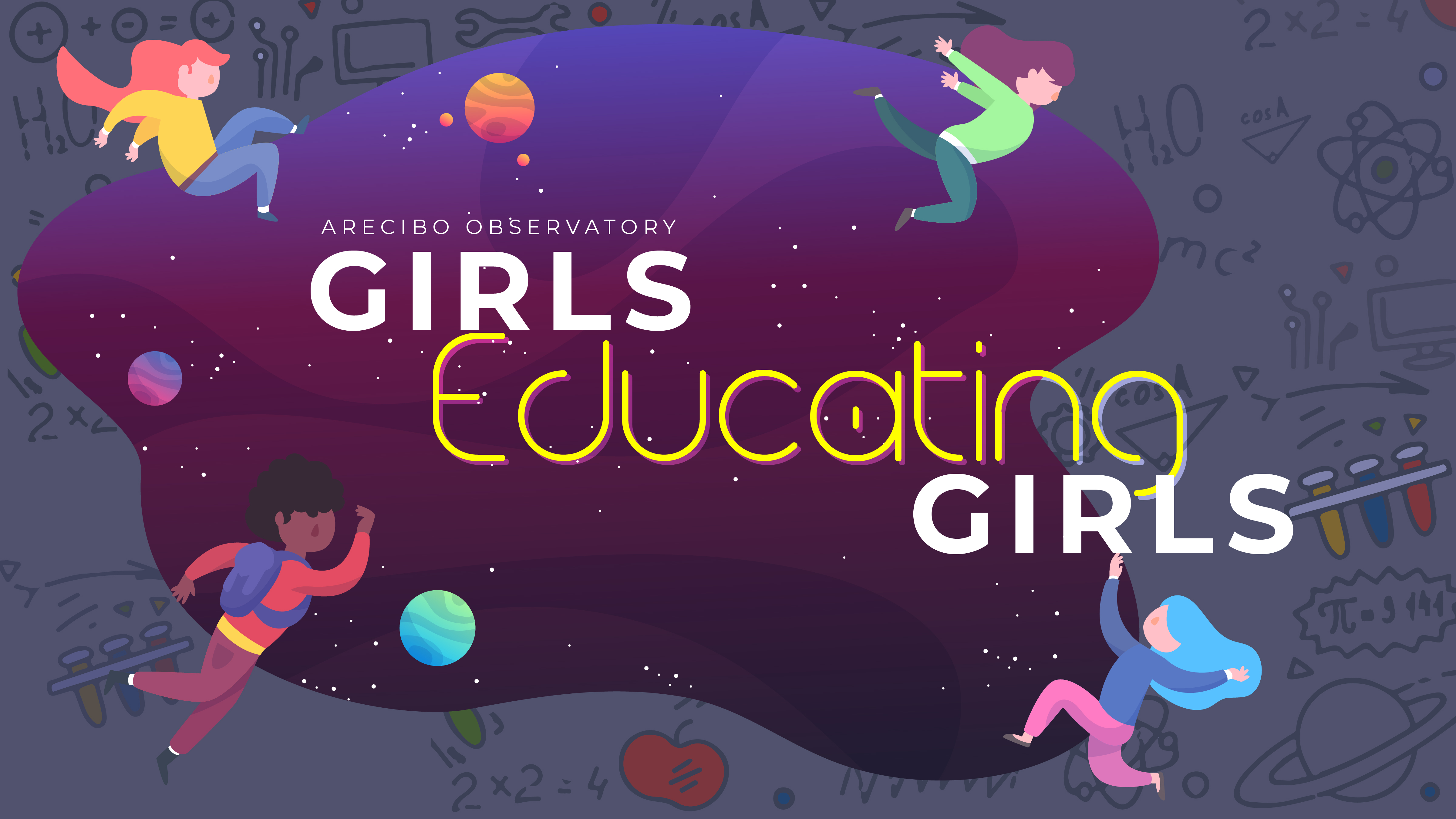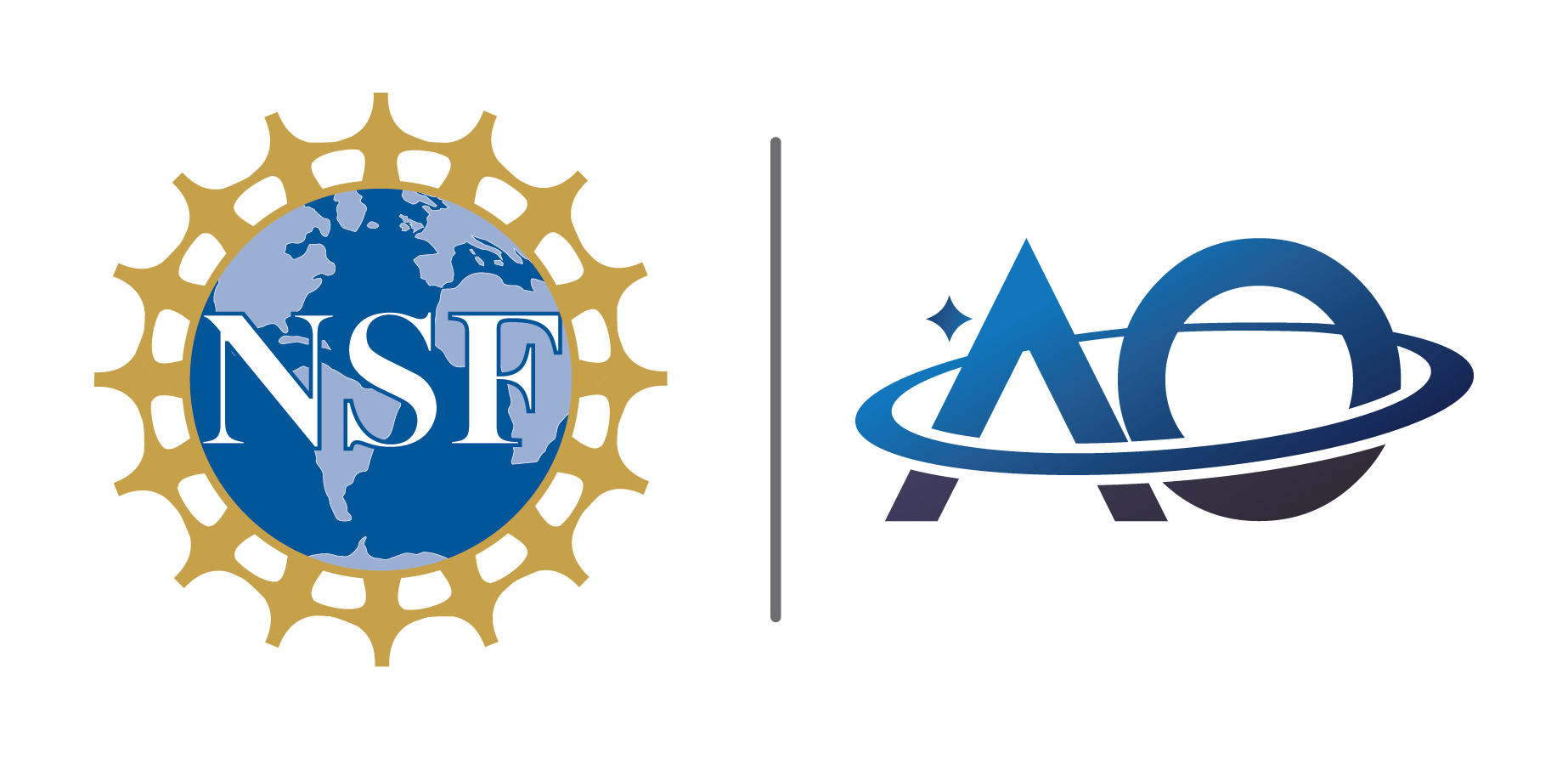- Leter from Dr. Julie Brisset (Principal Investigator of the Arecibo Observatory)13 Sep, 2022
- Arecibo Deputy Principal Scientist to Explore the Cosmos with the JWST02 Sep, 2022
- Letter from the Director22 Aug, 2022
- Piercing through the Clouds of Venus with Arecibo Radar17 Aug, 2022
- Summer greetings from the Facilities and Operations Team!17 Aug, 2022
- Arecibo Observatory at the Small Bodies Assessment Group12 Aug, 2022
- Meet the 2022 Arecibo Observatory REU students!11 Aug, 2022
- Meet Luis R. Rivera Gabriel, Research Intern in the Planetary Radar Group09 Aug, 2022
- Updates from the 2022 CEDAR Workshop in Austin, TX09 Aug, 2022
- Insights into the AAS Conference from AO Analyst Anna McGilvray08 Aug, 2022
- American Astronomical Society’s 240th Meeting: Plenary Lecture Building the Future of Radio Science with the Arecibo Observatory by Dr. Héctor Arce. 28 Jul, 2022
- TRENDS 202227 Jul, 2022
- Advancing IDEA in Planetary Science 27 Jul, 2022
- The Arecibo Observatory: An Engine for Science and Scientists in Puerto Rico and Beyond27 Jul, 2022
- Cryogenic Frontend work for the 12m telescope entering phase II21 Jul, 2022
- Remote Optical Facility Updates20 Jul, 2022
Girls Educating Girls
Byadmin28 September 2020 Education

| Education |
Girls Educating Girls is the newest initiative of the Arecibo Observatory to increase diversity in STEM fields. The program was recently awarded funding through NASA’s Puerto Rico Space Grant Consortium. The first program will run from September, 2020 through May, 2021.
Girls Educating Girls is designed to provide research experience for women enrolled in STEM fields at universities across Puerto Rico. The 4 selected students will be connected with mentors and provided with the necessary resources to conduct self-directed research on any topic of their choosing, within their area of study.
Phase 2 of the program consists of sharing their work – the students will be given the opportunity to create online modules and educational material that explain and highlight their findings. These will then be used to reinforce or compliment the science curriculum used in schools across the island.
“The main goal of the program is to increase the number of women in STEM careers – by furthering our undergrads’ professional development and by using these young women as role models for younger students,” explained Ms. Yasmín Santiago Serrano, Associate Director of the Science and Visitor Center at the Arecibo Observatory.
“Our initiative is by women for women. Through our participants’ work, we wish to encourage young girls to pursue STEM careers,” Ms. Santiago emphasized.
“Our initiative is by women for women. Through our participants’ work, we wish to encourage young girls to pursue STEM careers,” - Ms. Yasmín Santiago, Associate Director of the SVC at the Arecibo Observatory
Girls Educating Girls is designed to develop the college students’ science skills and professional development within STEM fields, specifically enhancing practical research skills: how to write a research proposal, what resources are available, how to apply theory to their project, and, ultimately, how to share their findings with people at all educational levels. Then, it is meant to teach and inspire the next generation.
“School students, especially young girls, should be able to see themselves reflected in the college student that is presenting their work,” Ms. Santiago shared. “We hope that it not only serves as a motivation for them to get involved in STEM, but also as a way to clarify any misconceptions or doubts about the subject area.”
The motivation for this initiative derives from the obvious need for online and virtual content during the COVID-19 pandemic.
The AO’s Science and Visitor Center (SVC), which runs under Ana G. Méndez University management typically receives approximately 15,000 students per year. Through a variety of didactic panels, interactive exhibits and educational lectures, the SVC has nurtured these young minds and inspired interest in STEM fields within the next generation. However, the pandemic has significantly reduced the number of students who would get to experience the high quality informal education that the SVC provides.
“As a result, we were driven to create accessible online modules that could support the educational system, enhancing the material they receive through their schools...” - Ms. Yasmín Santiago, Arecibo Observatory
“As a result, we were driven to create accessible online modules that could support the educational system, enhancing the material they receive through their schools,” shared Ms. Santiago. “We want to promote and enhance the STEM experiences schools provide to children.”
|
Article written by Dr. Tracy Becker - AO Collaborator / SwRI Research Scientist
Contact: tbecker@swri.edu |
Associate Director of the Science and Visitor Center |
Keywords: observatory, arecibo, GIRLS, radio, telescope, education, outreach, workshops, STEAM, STEM, visitor, center

